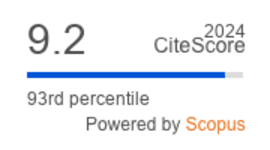A Review of Herbal Treatment for Functional Gastrointestinal Disorders and Infection
DOI:
https://doi.org/10.36877/pmmb.a0000346Abstract
Functional dyspepsia (FD), a common gastrointestinal condition, poses significant burdens on both individuals and society. In this article, we conducted PubMed searches using specific keywords to review clinical trials focusing on conventional and herbal treatments for dyspepsia as well as the adverse effects of non-herbal treatments. Dyspepsia can be managed using proton pump inhibitors, H2 blockers, and antacids. Additionally, we explore Tegaserod, a partial agonist of the 5-HT4 receptor, in the context of prokinetic medications. We summarise the research supporting the effectiveness of non-herbal dyspepsia treatment, considering factors beyond acid reduction, such as the placebo effect and the variability of dyspepsia symptoms, as discussed in the section on proton pump inhibitor (PPI) medication. Unlike most pharmacotherapies targeting a single mechanism, herbal medications often contain multiple active ingredients that can address several signalling pathways simultaneously. Notable herbs like fennel, cumin, aloe vera, ginger, and licorice have documented uses in the literature. Whether derived from a single plant or a combination, herbal treatments hold promises for addressing multiple conditions simultaneously. Therefore, evaluating herbal therapy at all stages of development should adhere to the same scientific rigour applied to chemically specific therapies.
Downloads
Published
How to Cite
Issue
Section
License
Copyright (c) 2023 Krupavaram B, A Kishore Babu, Santhiya Manickam Pillay, Tan Ching Siang, Bama V. V. Menon, Ganesh Sritheran Paneerselvam, Long Chiau Ming, Yaser Mohammed Al-Worafi, Wen Han Chooi

This work is licensed under a Creative Commons Attribution-NonCommercial 4.0 International License.
Author(s) shall retain the copyright of their work and grant the Journal/Publisher right for the first publication with the work simultaneously licensed under:
Creative Commons Attribution-NonCommercial 4.0 International (CC BY-NC 4.0). This license allows for the copying, distribution and transmission of the work, provided the correct attribution of the original creator is stated. Adaptation and remixing are also permitted.

This broad license intends to facilitate free access to, as well as the unrestricted reuse of, original works of all types for non-commercial purposes.
The author(s) permits HH Publisher to publish this article that has not been submitted elsewhere.



.png)

.jpg)
